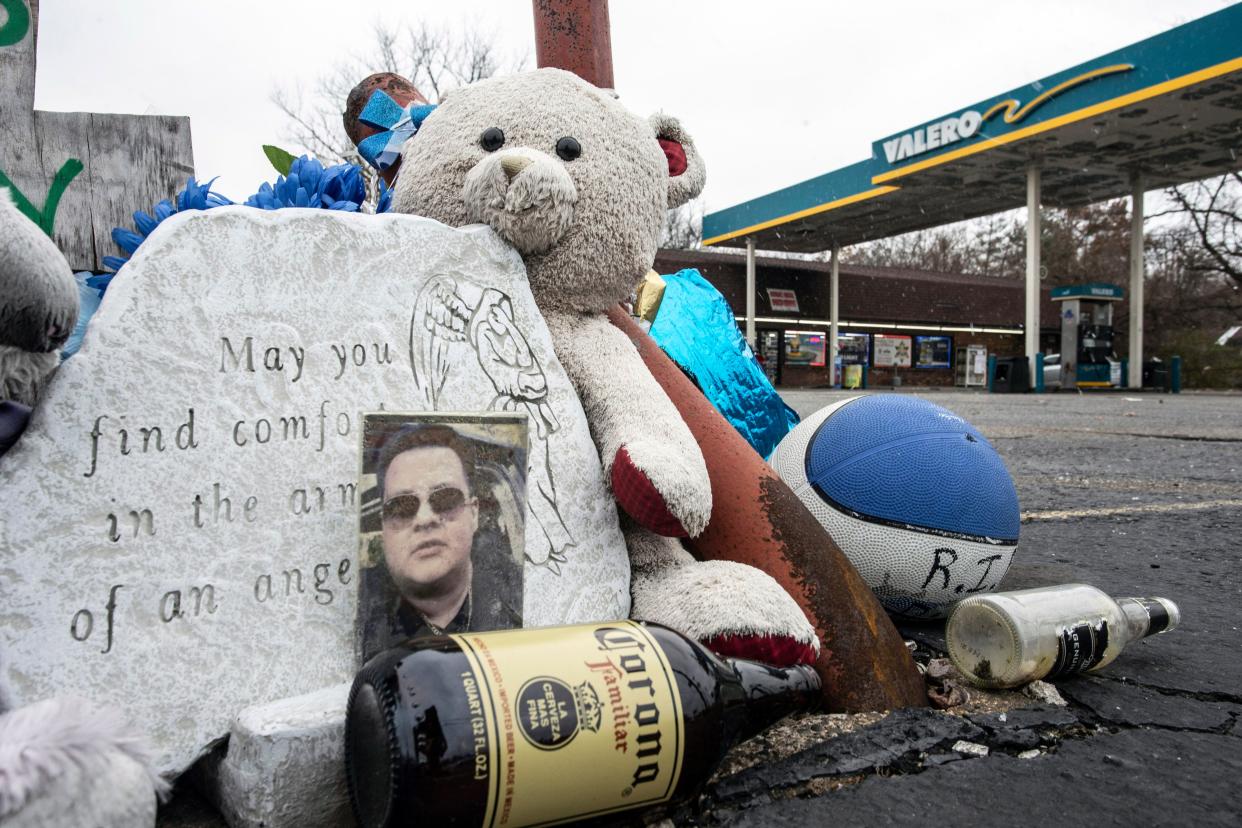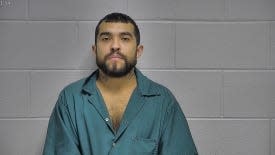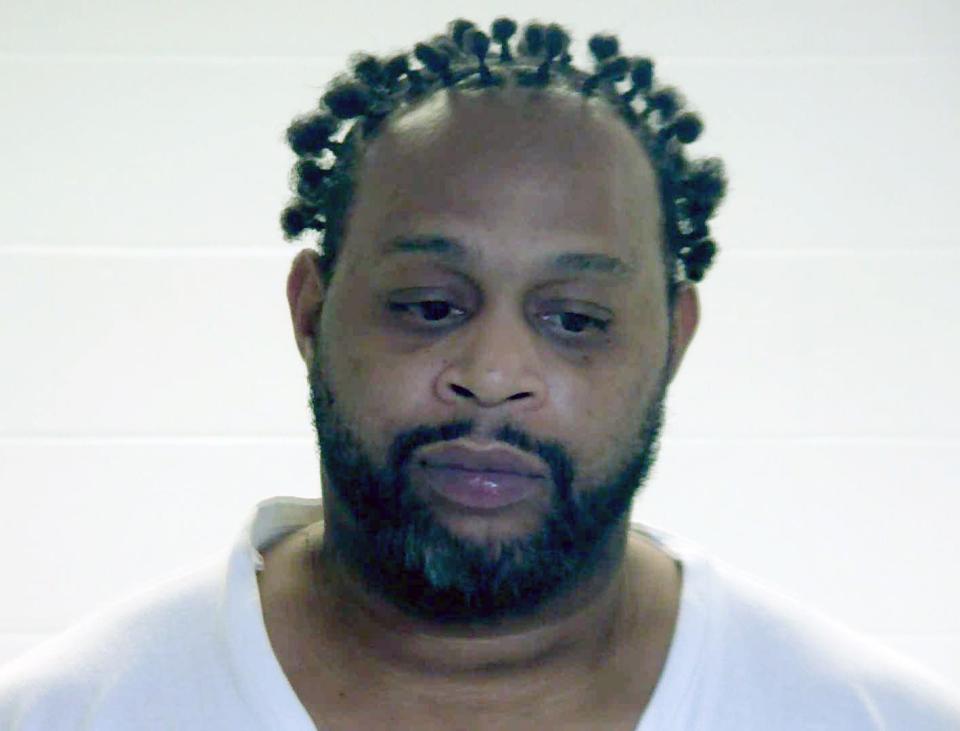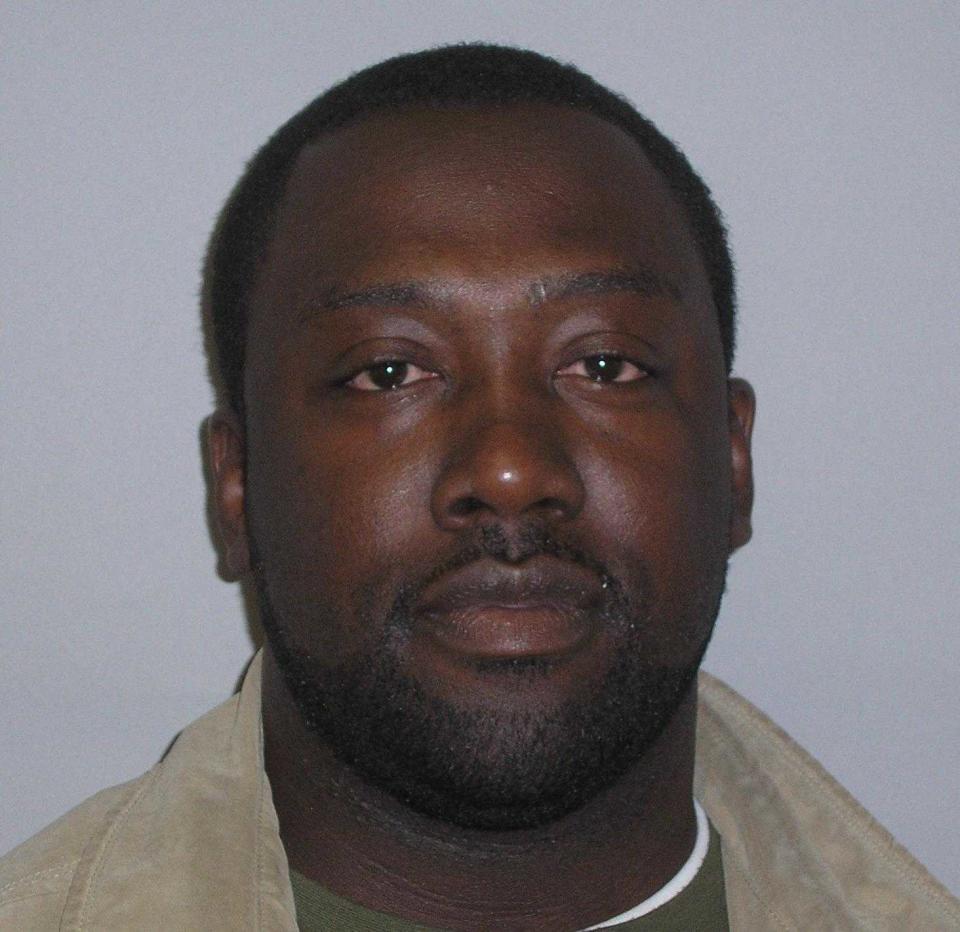Lengthy prison sentences bring Louisville's cartel-backed drug ring to a close

An Oldham County man ordered the murder of one of the groomsmen at his wedding over a perceived slight.
Javier Humberto Navarro Rodriguez set up a meeting with the victim, first cousin Vicente Rodriguez Ramirez, and then sat in a Lincoln Navigator a block away listening to the "pop, pop, pop" of the fatal shots from a hitman's gun.
Rodriguez later joined mourners at his cousin's funeral that day in 2018.
Rodriguez, a drug kingpin who zipped around town in a white Jaguar, was anxious to be respected as a tough guy. He later learned he may have been wrong, that his cousin may not have done anything against him after all. But by then, it was too late.
Rodriguez also discussed killing others, including his brother, "Junior," whom he viewed as the undeserving family favorite.
Investigators had obtained a judge's authorization for wire taps and listened in as Rodriguez discussed killing more enemies, so they had to act, toppling a major drug ring that supplied Louisville with millions of dollars of Mexican cartel-supplied heroin, cocaine and meth.

"I distributed drugs," Rodriguez admitted in court, while pleading guilty to leading the drug ring and playing a role in the murder. "I knew that Vicente Ramirez was going to be ambushed."
This year, a judge sentenced him to serve 40 years in federal prison, where parole is not an option. Rodriguez is appealing his sentence, which was issued in May.
This drug network targeting the Derby City isn't an anomaly. It exemplifies how the reach of cartels extends far beyond border towns and large cities, as cartel leaders across the border continue to capitalize on the deadliest drug epidemic in U.S. history.
'Before they even walk, I'm already running'
The Courier Journal attended court hearings in this case, sifted through hundreds of pages of court documents and transcripts and interviewed an investigator for a glimpse at the Rodriguez drug ring's inner workings.
Several years ago, Louisville police and agents with the U.S. Drug Enforcement Administration learned that Rodriguez, the son of a drug dealer, had surfaced as a significant supplier.
Rodriguez and his family lived in a private wooded area of Oldham County in a two-story brick home ― worth about $550,000 in 2018 ― on about six acres in La Grange. Rodriguez claimed he made a living hanging drywall, including work at Churchill Downs. But police knew the illegal drug trade funded his lifestyle of luxury cars, Rolex watches and diamond and gold jewelry.

Rodriguez relied on Dwayne Claude Castle, 45, who had more street smarts, to fulfill a type of upper-management role directing daily operations. Once drugs arrived in Louisville, Castle, a convicted cocaine dealer and serial burglar, arranged to sell them in bulk to dealers, who sold them in smaller amounts on the streets.
He guarded drugs at two stash houses in the suburbs of southern Jefferson County. Police spent months watching him and tracked his black Tahoe to one of the hiding spots, a modest brick home on Dominique Drive in the Highview area. But Castle mostly stayed at the other stash house, a three-bedroom home on Labor Lane, southwest of Fern Creek Park.
Agents say Rodriguez made it appear as if he hired Castle and Charles Orlando Cater, known as "Tuki," for his construction business to create the appearance of legitimacy for the trio as they conducted drug business.
In 2016, agents flipped one of the drug ring associates, who agreed to become an informant. They conducted undercover drug buys and then used that evidence as probable cause to listen in on phone calls between Castle and Rodriguez.
Investigators heard Rodriguez chat about killing people, including his father, a convicted drug dealer who helped set Rodriguez up in the drug world. The son didn't think his father was showing him proper respect as the new drug boss in town.
"I'm the youngest. They think I would be the stupidest one, but [expletive] that," Rodriguez told Castle, according to a call transcript. "Before they even walk, I'm already running."
Rodriguez claimed he eclipsed his father, netting up to $1 million every month. He said his father felt he was entitled to a bigger piece of the profits, at one point threatening to send someone to his son's house to collect.
The son cautioned his father: "I'll blow your head [off] with their head, too."
Rodriguez's motive for ordering his cousin's death centered on a drug rip off. It all started when a new customer wanted a kilo of heroin and claimed he would pay $70,000. Vicente Ramirez, known as "Big V," vouched for the customer and agreed to serve as the middle man, brokering the deal in the West End.
But on Jan. 16, 2018, Rodriguez and Castle walked into a trap.
As the men neared the 2100 block of West Kentucky Street in the California neighborhood, someone started firing at them. They returned fire.
When the gun battle was over, no one was injured, but the drugs had vanished.
Rodriguez fumed, set on revenge.
He heard that his cousin doubled-crossed him, something investigators now doubt.
DEA agents listened in as Castle tried to calm Rodriguez, urging against action. Rodriguez was resolute.
Castle wanted to lessen their chances of getting caught, suggesting using hitmen: "You got shooters. Use them."
Ramirez felt bad that he vouched for the man who ripped off his cousin, so he offered to sell some marijuana and give all the proceeds to Rodriguez. Rodriguez agreed, but it was a trap.
Four days after the drug ripoff, on Jan. 20, 2018, Ramirez drove his maroon Chevy pickup to south Jefferson County to pick up the marijuana in the Newburg neighborhood. Instead, a gunman crept up beside the truck and fired several shots, killing Ramirez, 24. Rodriguez and his crew sped off, tossing the murder weapon in a creek.
Agents were mounting a strong case against Rodriguez. That same month, agents were hiding nearby when they watched Rodriguez and Castle hop into a BMW sent from the California supplier on a car-hauler. Inside, the supplier hid 20 pounds of high-grade marijuana, which Louisville narcotics detectives estimated had a street value of about $60,000. Investigators watched as the two suspects drove the luxury SUV to a Highview-area house and unloaded the drugs, hidden in the interior paneling and inside the tires.
Investigators wanted to sniff out Rodriquez's sources of supply, mainly a contact in Chicago and another one north of Los Angeles. The two were brothers linked to the Cártel Jalisco Nueva Generación, known as CJNG or the Jalisco Cartel. The Courier Journal traveled to Mexico in 2019 as part of a special project to learn more about CJNG, blamed along with the notorious Sinaloa Cartel for the bulk of illegal drugs killing Americans.
But agents were spooked by the murder of Ramirez. They couldn't risk any more bloodshed and moved in to arrest Rodriguez and his associates.
'A kilogram-quantity narcotics trafficker'
In the early morning of Feb. 23, 2018, more than two dozen DEA agents and LMPD officer, including SWAT, raided five locations at the same time, including the Cater's home in Okolona and Rodriguez's home in La Grange.
Castle relaxed on his couch as a SWAT team surrounded his house and threw flash bangs over his head. The diversion devices cause dizziness and ringing in the ears to disorient suspects. He didn't have the chance to resist and was led away in handcuffs.
After his arrest, Rodriguez admitted to being "a kilogram-quantity narcotics trafficker with multiple sources of supply in California and Mexico." But he refused to discuss his cousin's murder.
He had already talked enough. Agents recorded conversations as Rodriguez told Castle of his fears that one of their associates would double-cross them and spill secrets about Ramirez's murder to police.
Castle tried to reassure his boss: "They ain't got the murder weapon."
Investigators also used geo-mapping to track cellphones used by Rodriguez and Castle to within one block of the Newburg shooting. They also claimed Cater was there, too.
When faced with the evidence, Rodriguez and Castle decided to plead guilty. Both admitted to their role in setting up Ramirez for murder.
Cater, however, took his chances at trial.

His attorney, Patrick Renn, poked holes at the geo-mapping evidence, arguing that in one instance, prosecutors erroneously claimed his client was in the federal building on a Friday night, based on cell phone tower ping data.
"They certainly got that one way wrong," Renn said. "If you get one of them wrong, who's to say you weren't wrong about the others."
Prosecutors didn't have the murder weapon, which was never found. And their eyewitnesses were two co-conspirators, Rodriguez and Castle, whom Renn described as "people with credibility issues."
Castle claims he followed Rodriguez's orders to pay Cater $30,000 to shoot Ramirez and another target, who got away. Cater insists that Castle fired the fatal shots.
Prosecutors, who sought a life sentence for Cater, lost their key witnesses when both Rodriguez and Castle changed their minds and refused to testify, not wanting to be labeled a "snitch."
A jury acquitted Cater on murder charges, but convicted him on drug trafficking charges in December.
In April, a judge sentenced him to serve 21 years and 10 months in prison.
"He's disappointed he was convicted at all," Renn said.
Last month, Cater sent another in a series of letters from prison to the court asking for court records to appeal his conviction.
In May, a judge sentenced Castle to serve 20 years in prison.
A judge sentenced Rodriguez to 40 years in prison in May. That's a hefty sentence considering he pleaded guilty. It could have been less severe had he honored his initial agreement to testify against Cater.
He, too, is appealing his sentence.
Though he was initially discussing a drug debt, his words during a past intercepted phone call were prophetic.
"We're not always gonna win," Rodriguez said. "You know, you gotta lose sometimes."
This article originally appeared on Louisville Courier Journal: Prison sentences end Louisville drug ring tied to Mexican cartel CJNG

